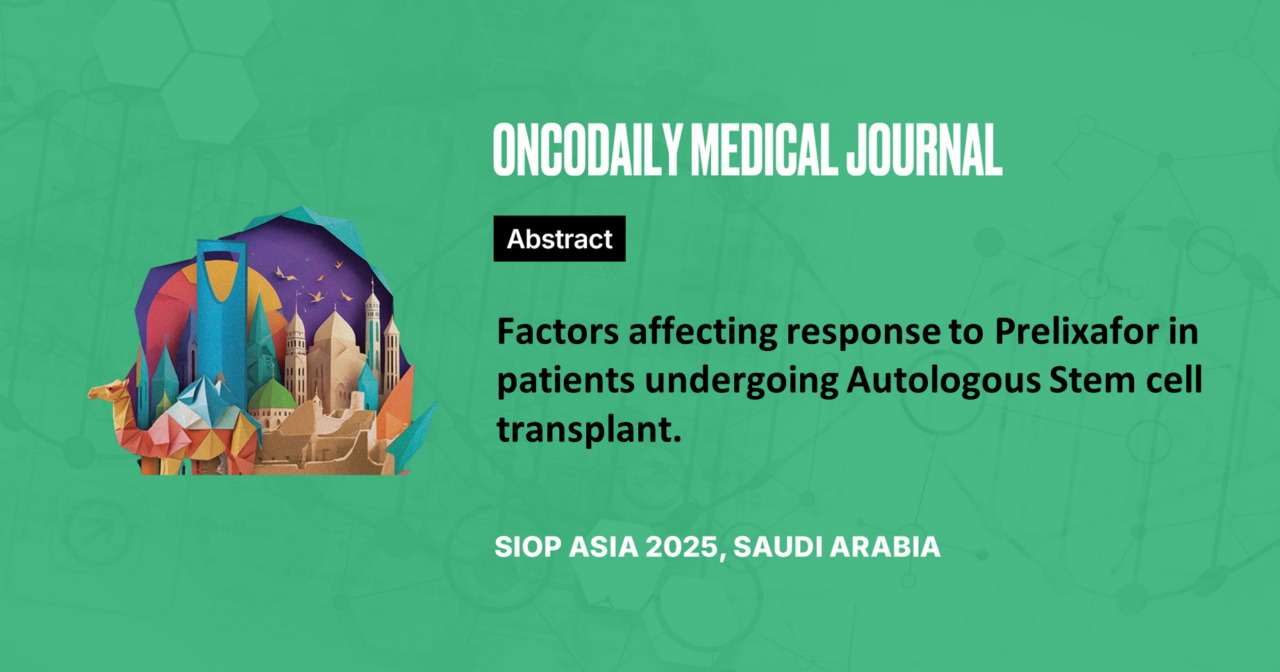Factors affecting response to Prelixafor in patients undergoing autologous Stem cell transplant
Abstract
Introduction: Plerixafor is a bicyclam molecule with the ability to reversibly bind to receptor CXCR-4 thus leading to an increased release of stem cells (SC) into the circulation. This study aims to study factors which affect the response to Prelixafor in patients undergoing Autologous Stem cell transplant.
Methodology: Thirty two patients underwent autologous stem cell transplant at our centre out of which twenty-three patients were mobilised with GCSF and Prelixafor. Prelixafor was administered at a dose of 0.24mg/kg eight hours prior to stem cell harvest. CD34 counts were noted before and after administration of Prelixafor, and an absolute increase in CD34 count was calculated. This absolute increase in CD34 count was used to assess response to Prelixafor. Patient factors like age, sex, baseline platelet count, marrow involvement at baseline, presence of comorbidities and malnutrition were recorded. Regression analysis was done to look for the effect of these factors on response to Prelixafor in terms of absolute increase in CD34 count.
Result: The mean age of our cohort was 8.1 years. Out of 22 patients, four were female rest were male. Nine were neuroblastoma, Eight were Hodgkins, three of retinoblastoma, and one each of non-Hodgkin’sand APML relapse. Four patients had previous exposure to RT, seven patients received more than three lines of therapy, while eight patients had marrow involvement at baseline. Mean baseline platelet count was 2.46 lacs/uL. Mean increase in CD34 after Prelixafor was 1945/uL. Upon applying regression analysis to look for the effect of these factors on absolute CD34 count, baseline platelet count was found to be statistically significant (p-value=0.037), while other factors also affected CD34 counts but did not achieve statistical significance.
Conclusion: Based on our study, Baseline platelet count significantly affected response to Prelixafor, while other factors did not have significant effect on response to Prelixafor.





